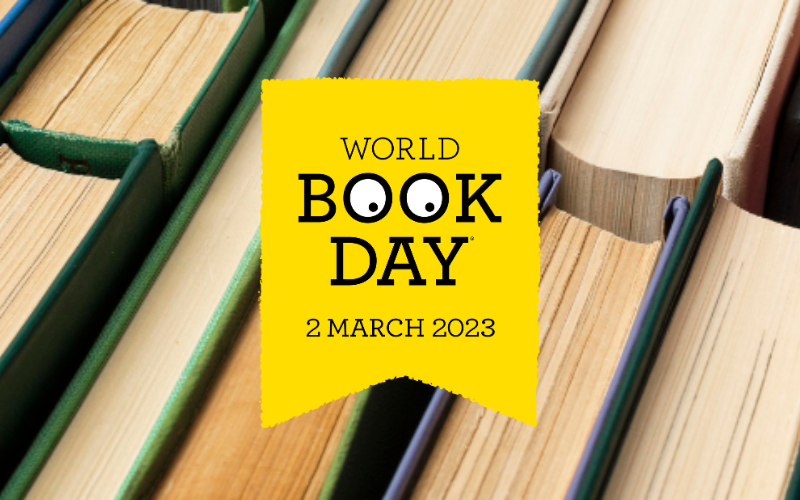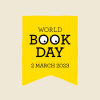Why World Book Day Matters More Than Ever
World Book Day (WBD) is a charity that changes lives through reading. Every year, and year-round, it creates a national conversation about the enjoyment of books and reading. Through its annual event in March – with its joy, celebration and fun – we encourage more children to read, and raise awareness of the difference reading makes to their lives. Through our year-round activities we support families, schools, libraries, bookshops and the wider community to help children develop a life-long love of reading.
Our aim is to improve life chances for more children, particularly those growing up faced with disadvantage and inequality. Whether we like to measure success as educational attainment or well-being, reading for pleasure matters more than a child’s family circumstances, their parents’ educational background or their income.
But reading for pleasure is in decline. Evidence from the National Literacy Trust (NLT) shows that in 2022 just 48% of children said they enjoyed reading, a figure which – when we look just at children and young people growing up with disadvantage and inequality – drops to 44%.
So, with reading for pleasure is at its lowest level since 2005, and a cost-of-living crisis combined with deepening educational and social inequality, WBD is a celebration that matters, and makes a difference.
The importance of reading
There’s no question that WBD is a huge presence in children’s lives. We know that 97% of children have heard of it, and that when children take part in a WBD event, 55% go on to read more books as a result.
We know that many children aren’t confident in saying ‘I am a reader’, despite its vital importance to their development. That’s why at WBD we have looked at the evidence to understand what factors are at play, and use our annual celebration to provide routes to reading enjoyment.
We’ve defined ‘reading for pleasure’ as ‘feeling [a] sense of satisfaction or pleasure by engaging with chosen reading material in their free time’. And we have absorbed and analysed the evidence to present six elements that enable a child to read in this way:
- Being read to regularly
- Access to books at home
- The ability for children to choose what they want to read
- Having trusted adults and peers sharing and recommending books
- Time to read
- The reading experience being enjoyable
Our resources, activities, events and the celebration itself are all based on encouraging these six behaviours, and finding ways to overcome barriers to reading.
The NLT also found that 1 in 10 children from disadvantaged backgrounds said that they don’t own a single book of their own at home. It’s important that, through an exceptional collaboration between publishers and booksellers, WBD is able to offer every child and young person the chance to experience choosing and owning a book – for free.
An industry collaboration
Every year WBD works with publishers and booksellers to make a range of £1/ €1.50 books available for children, who can access them for free when exchanged with the £1/ €1.50 token they receive in school or at nursery. 1 in 5 school children who receive free meals say the first book they have owned is a WBD book.
WBD’s charitable work has been supported by the industry from its earliest days, over 25 years ago. The first WBD in the UK and Ireland took place in 1997 to encourage young people to discover the pleasure of reading. As one of its founders, Baroness Gail Rebuck, recalled, “We wanted to do something to reposition reading and our message is the same today as it was then – that reading is fun, relevant, accessible, exciting, and has the power to transform lives.”
Now, in 2023, our headline sponsor is still National Book Tokens, and we receive funding from over 40 publishers. This year over 4,000 bookshops are taking part, making the WBD books available to children across the UK and Ireland.
We know WBD has more to do. We want to make sure the charity, our event and our year-round work helps to improve engagement with reading, and reach more diverse communities to support life-changing reading habits with children and families experiencing disadvantage and inequality.
Working together with publishers and booksellers, WBD is helping to reverse the decline in children choosing to read. As an industry, in supporting WBD publishers and booksellers are helping to improve life chances for all children.
Cassie Chadderton is Chief Executive of World Book Day. This year’s WBD takes place on 2 March 2023. Find out more – including ways to fundraise – at www.worldbookday.com.



Cassie Chadderton
Cassie Chadderton is Chief Executive of World Book Day. This year’s WBD takes place on 2 March 2023. Find out more – including ways to fundraise – at www.worldbookday.com.
You can also follow WBD on Facebook, Twitter, Instagram and YouTube.